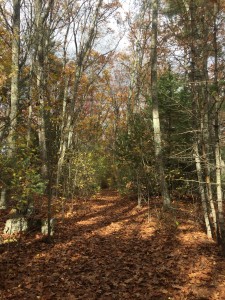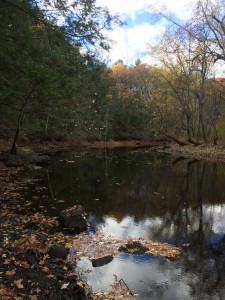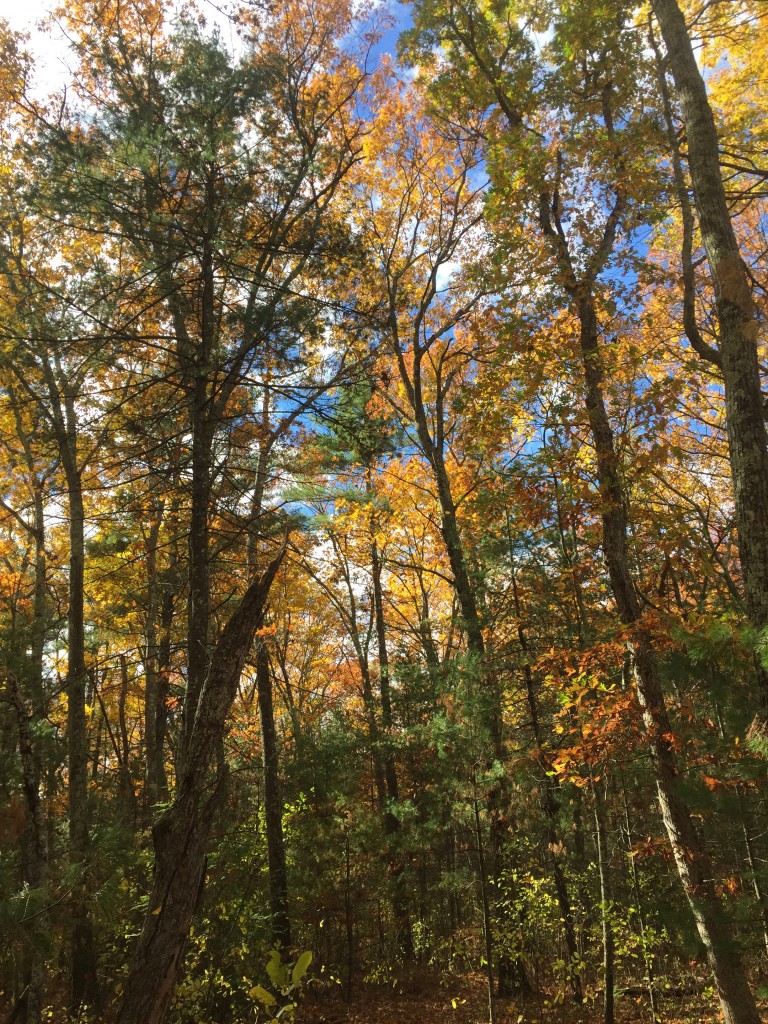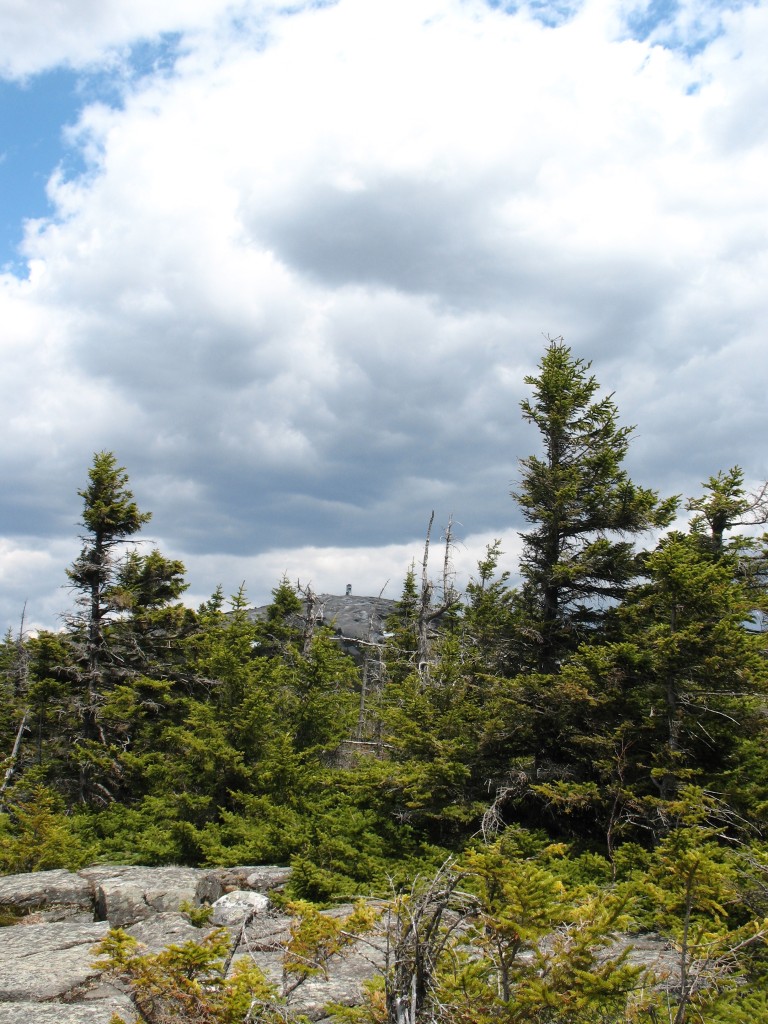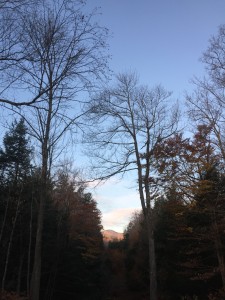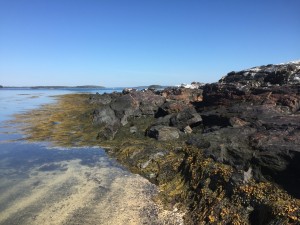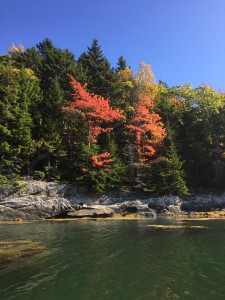In Concord for a short visit, I find myself with a single free hour, and, as ever, my feet answer the always-question: what should I do? “Walk, of course,” they say. “You are, of course, home in Henry-land.”
And so I set out for one of Henry Thoreau’s rivers, two in fact, which really makes it three – I’ll trace the Assabet for a bit from the hemlock bend upstream, turn back then and edge over for a look at the Sudbury, where the railroad used to cross, and then, I’ll join these two where they conflow and become the Concord. And this walk itself will be confluence, a flowing together of so many past walks and runs with this present.
I’ve no revelation as I walk, kicking the leaves that lie thick on the old railroad grade, watching the light shift under the passing clouds. Instead my mind seems to quiet, seems to slide along, for a change, at the pace of these rivers, whose most hurried expression is a small swirl or three where the Assabet leaves the hemlock bend. Each thought arrives and passes like the rafts of oak leaves heading for the Concord.
The Concord gathers itself of the Sudbury and Assabet at “Egg Rock”; there, the water must bring news, or at least leaves, of the mild uplands behind. The broad Sudbury is actually the lesser to the two, its water as slow as a nap. And after a dry summer with its open banks, the two rivers make one that sticks to its channel, that is so slow here that the sea is only far rumor.
The trails are a river of downed leaves, and I leave my feet low to the ground to kick through them, listening to the rustle that takes me back to childhood and walking through rather than around the pillowed leaves along the street. Up in the under- and mid-stories of the trees, the light ricochets from the still-yellow and russet fire of the leaves – it is November’s show of slanted light. Short days; purest light. Finest hour.

